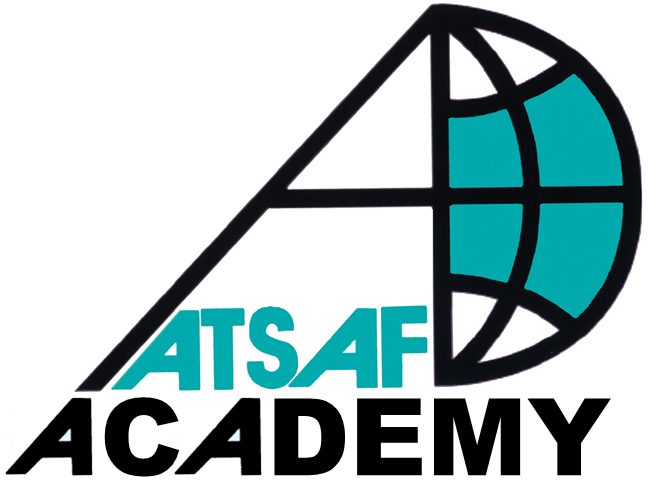Gender Strategy
1. Preamble
The Academy for International Agricultural Research (ACINAR) and Junior Scientists Tandems (JST), are projects of ATSAF e.V. funded through the BMZ via GIZ for international PhD and MSc scholarships and graduate school program aiming to foster the scientific cooperation between German and international agricultural research. ATSAF e.V. has founded, based on this project, the ATSAF Academy for International Agricultural Research, in the following ATSAF Academy.
Beside many gender equality statements and regulations there are prevailing inacceptable gender inequalities at many different levels – in agriculture, in science, and in the development domain worldwide.
The Gender Strategy of the ATSAF Academy presents the Academy’s goals and priorities in addressing these gender gaps and defines the objectives, deliverables, and accountability mechanisms put in place in order to ensure the Academy’s contribution to gender equality and fair and equitable working conditions in international agricultural research for development.
2. Principles
The ATSAF Academy’s gender strategy acknowledges the CGIAR Consortium Level Gender Strategy, endorsed by the (CGIAR) Consortium Board in November 2011, the related gender strategies developed and implemented by the CGIAR Research Programs (CRPs), and the CGIAR Discussion Paper “Implementing Gender Transformative Approaches in Agriculture”. The Academy understands, that all research undertaken by its scholars is in line with these strategies and implementation plans.
The ATSAF Academy will adhere to the following guiding principles in all its activities:
Do no harm
Existing inequalities and discrimination based on gender must not be accelerated by any measure implemented in the context, or under the umbrella, of the ATSAF Academy.
Mainstreaming
All measures implemented (PhD scholarship program, the ATSAF Academy’s PhD training program, the development of training materials) will be designed to adequately take gender-specific vulnerabilities, assets, capacities, constraints, and opportunities into account. Particular attention will be placed on providing equal opportunities to women and men alike in order to foster gender equality on all levels.
Empowerment
In order to ensure gender equality, the ATSAF Academy will actively take measures towards empowerment, which will promote self-confidence, freedom of choice, and self-determined decision making. The ATSAF Academy’s work and its implementation of measures (PhD scholarship program, PhD training program, development of training materials), will, wherever feasible, tackle structural constraints, cultural norms, and societal stereotypes that cement unequal power relations and reinforce gender inequality.
Through the ATSAF Academy’s PhD training program and the development of training materials the Academy will sensitize its scholars on gender integration in R4D activities and enable them to understand and implement gender mainstreaming activities.
3. Goals
In all its activities, the ATSAF Academy aims to contribute to gender equality within the context of international, development oriented agricultural research.
Goal A: Gender Mainstreaming into agricultural research and implementation to ensure, that both women and men are reached by project activities like trainings and technology development. This is to be achieved through the following approaches:
Gender analysis: Undertaking a gender analysis to understand men and women differential needs and requirements. The purpose of the analysis of gender differences is to inform the entire research cycle: targeting, priority setting, research design, implementation, research adoption/utilization, monitoring, evaluation, and impact assessment.
Gender research: Designing and conducting studies in which gender and gendered relations are the main research topic.
Goal B: Gender equality at the workplace: The ATSAF Academy’s fellowship program provides fair and equitable working environments for scientific talents regardless of gender, sexual orientation, identity, racial and/or ethnic identity, and geographical / national origin.
To ensure the workplace meets the above criteria, the ATSAF Academy links to the CGIAR++ Center’s gender strategies and the gender policies of the hosting universities.
This is to be achieved through adhering to the following principles:
- Equal participation and decision-making: Ensuring balanced participation of women and men in fellowship programs and in the Expert committee of the Academy
- Equal and fair working environment: Implementing measures to resolve gender-related constraints and disadvantages (e.g., family-friendly working hours, financial compensation).
- To ensure the workplace meets the above criteria, the ATSAF Academy will consider relevant strategies and regulations of host institutions in Germany and the CGIAR++ centers.
4. Deliverables & accountability
In order to achieve goals A and B above, ACINAR shall produce the following deliverables.

5. Plan of implementation
In order to implement the ATSAF Academy Gender Strategy, the following plan of implementation is foreseen:
- Endorsement of and commitment to the ATSAF Academy Gender Strategy by the Expert Committee of the ATSAF Academy
- Communication of the ATSAF Academy Gender Strategy on the ATSAF Academy website
- Prescription of acknowledgement of the ATSAF Academy’s Gender strategy by all scholars funded
- Inclusion of Gender aspects into the PhD-student’s training
- Bi-annual documentation of the implementation of the ATSAF Academy Gender Strategy
- Final evaluation and documentation of gender-related PhD-research
